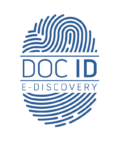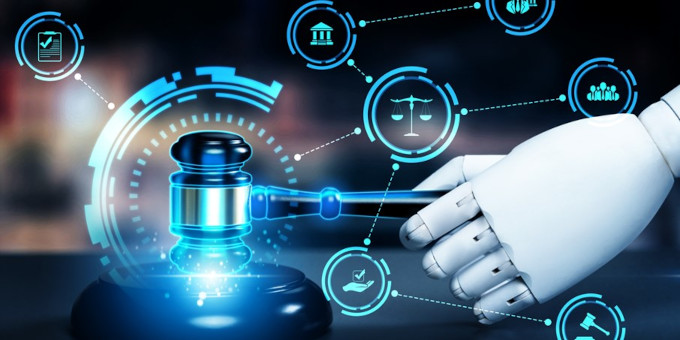The Impact of New Technology on the Legal Industry
Introduction
Technology has transformed every aspect of our lives, and the legal industry is no exception. From artificial intelligence and machine learning to cloud computing and blockchain, new technologies are reshaping the way legal professionals work. These advancements not only increase efficiency and productivity but also pose significant challenges and opportunities for both lawyers and clients. In this article, we will explore the impact of new technology on the legal industry and discuss how it is revolutionizing the practice of law.
1. Artificial Intelligence and Machine Learning
Artificial Intelligence (AI) and Machine Learning (ML) have become buzzwords in recent years, and their impact on the legal industry is undeniable. AI-powered algorithms can now process and analyze enormous amounts of legal data, making it easier and faster for lawyers to conduct legal research and find relevant case law and precedent. This eliminates the need for manual research, saving valuable time and reducing human error.
Additionally, AI-powered chatbots are changing the way lawyers interact with clients. These chatbots can provide legal advice, answer frequently asked questions, and even draft legal documents based on predefined parameters. This not only reduces the cost of legal services but also improves accessibility, as clients can get instant legal advice without the need for scheduling appointments or visiting law offices.
Case Study: ROSS Intelligence
A notable example of AI in the legal industry is ROSS Intelligence. ROSS is an AI-powered legal research platform that uses IBM Watson’s cognitive computing capabilities to analyze and answer legal questions. It can search through thousands of legal documents and provide relevant results in a matter of seconds. This technology has revolutionized the way lawyers conduct legal research, enabling them to find relevant cases faster and more efficiently.
2. Cloud Computing
Cloud computing has become a game-changer for the legal industry. It allows lawyers to store, access, and manage data and documents securely from any device with an internet connection. This eliminates the need for physical storage and minimizes the risk of data loss or theft. Moreover, cloud-based practice management systems enable lawyers to streamline their workflows, collaborate with colleagues, and manage client communications more efficiently.
Case Study: Clio
Clio is a cloud-based practice management software designed specifically for law firms. It provides a secure platform for lawyers to store and manage client data, track billable hours, generate invoices, and streamline their overall practice management. With Clio, lawyers can access their data from anywhere at any time, allowing for remote work and flexibility.
3. Blockchain and Smart Contracts
Blockchain technology, known for its association with cryptocurrencies like Bitcoin, is now being explored for its potential in the legal industry. Blockchain’s decentralized, tamper-proof nature makes it an ideal solution for securing sensitive legal documents and transactions. Smart contracts, which are self-executing contracts with the terms of the agreement directly written into the code, are one of the most promising applications of blockchain in law.
With smart contracts, legal agreements can be automated, reducing the need for intermediaries and minimizing the risk of disputes. For example, in a real estate transaction, a smart contract can automatically transfer ownership when certain conditions are met, eliminating the need for a traditional paper-based closing process. This not only reduces costs but also increases efficiency and transparency.
Case Study: OpenLaw
OpenLaw is a platform that allows lawyers to create, manage, and execute legal agreements using smart contracts. It provides a user-friendly interface for drafting legally binding contracts and ensures that all parties involved can verify the terms and conditions securely. OpenLaw leverages blockchain technology to enhance transparency and trust in the legal process.
4. E-Discovery and Data Analytics
In the digital age, vast amounts of data are generated every day, and lawyers often need to sift through this data during the discovery phase of litigation. E-discovery, the process of electronically identifying, collecting, and producing relevant information, has become a complex and time-consuming task. However, advancements in technology have made e-discovery more efficient, accurate, and cost-effective.
Machine learning algorithms can analyze and categorize large volumes of electronic data, such as emails and documents, to identify relevant evidence. This not only speeds up the discovery process but also reduces the likelihood of missing critical information. Data analytics tools can also provide valuable insights into patterns and trends in legal data, empowering lawyers to make data-driven decisions and gain a competitive edge.
Case Study: Relativity
KL Nebula is a leading e-discovery software used by law firms and legal departments to manage and analyze large volumes of electronic data. It offers powerful data processing, search, and visualization capabilities, enabling lawyers to identify relevant evidence quickly and effectively. By using Kl Nebula, legal professionals can streamline their e-discovery process and save valuable time and resources.
5. Cybersecurity and Data Privacy
As technology advances, cybersecurity and data privacy have become major concerns for the legal industry. Law firms and legal departments handle sensitive client information and confidential case details, making them prime targets for cyberattacks. Therefore, it is crucial for legal professionals to adopt robust cybersecurity measures to protect their data and ensure client trust.
Advanced encryption techniques, multi-factor authentication, and secure client portals are some of the cybersecurity measures that law firms can implement to safeguard their data. Additionally, data privacy regulations, such as the General Data Protection Regulation (GDPR), have imposed strict requirements on how organizations handle personal data. Compliance with these regulations is not only a legal obligation but also a business imperative.
Case Study: ProtonMail
ProtonMail is an encrypted email service that provides end-to-end encryption and zero-access encryption for user data. This means that even ProtonMail itself cannot access user emails or decrypt them. Using ProtonMail can add an extra layer of security to communications between lawyers and clients, ensuring that confidential information remains protected.
Conclusion
In conclusion, new technologies are revolutionizing the legal industry by increasing efficiency, improving accessibility, and enhancing security. Artificial Intelligence and Machine Learning are transforming legal research and client interactions, while cloud computing enables remote work and efficient practice management. Blockchain and smart contracts are redefining the way legal agreements are executed, and e-discovery and data analytics tools are making the discovery process faster and more accurate. Finally, cybersecurity and data privacy have become crucial considerations for law firms in the digital age. As technology continues to advance, legal professionals must embrace these new trends and adapt to stay competitive in the ever-evolving legal landscape.
Therefore, it is essential for legal professionals to stay abreast of technological advancements and utilize the tools and platforms available to enhance their practice. By embracing the opportunities that technology offers, lawyers can streamline their workflows, provide more efficient and accessible legal services to their clients, and ultimately, transform the way law is practiced.








Leave A Comment